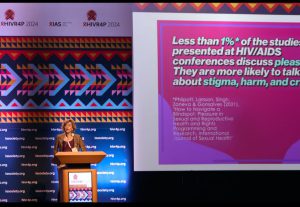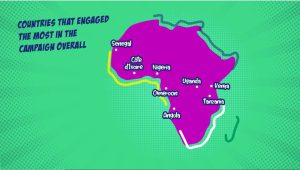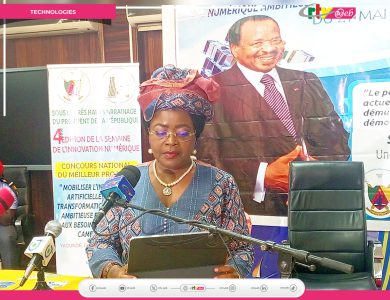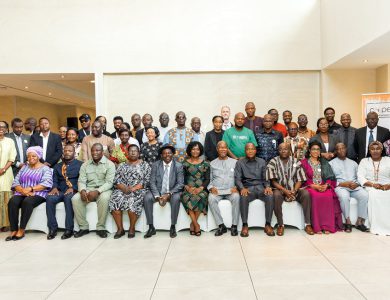What if the path to curbing HIV infections began not with warnings, but with a simple question: « What makes you feel good? »
In the ongoing battle against HIV, traditional messaging has often focused on the grim realities of infection, emphasizing fear, death, and disease.
However, a pathbreaking initiative known as « The Pleasure Project » is taking a radically different approach, integrating sexual pleasure into conversations about safer sex and sexual health.
Spearheaded by Anne Philpott, the Founder and Co-Director of the Pleasure Project, this global movement advocates for the integration of pleasure into sexual health interventions, making them more effective and appealing.
It is not just about enhancing sexual experiences but also about saving lives by preventing HIV and other sexually transmitted infections (STIs).
Anne Philpott’s journey began over two decades ago, driven by frustration with the lack of open conversations about sex in the sexual health field.
« I noticed that sex education programs often ignored the reason people have sex — pleasure, » Philpott says.
She recounts attending an international AIDS conference where, to her dismay, there was almost no discussion about sex itself, only about the negative consequences.
She added that, the lack of focus on pleasure in sexual health interventions leaves a major gap in efforts to encourage safer sex practices.
The Pleasure Project: Evidence-Based Outcomes
With 39.9 million people globally living with HIV, the Pleasure Project approach is not only evidence-based to attaining the prevention goal, but also essential for improving sexual health outcomes.
« We know that inclusion of pleasure saves lives, if we had done this earlier in the HIV epidemic, we would have saved so many more lives. » Philpott emphasizes.
She believes that, Pleasure-inclusive messaging makes sex education more relatable and empowering, particularly for young people, who may feel alienated by the traditional fear-based narratives.
From frustration to fulfillment, today, Philpott’s efforts have gained significant recognition, with pleasure now being discussed at major international conferences like the 5th HIV Research for Prevention Conference (HIVR4P2024) held in Lima, Peru from October 6 to 10.
As the Pleasure Project gains more champions across the globe, including in Africa, its principles are being adapted to suit diverse cultural contexts. In Kenya, for example, the Africa Pleasure Hub is working to reshape sexual health tools and messages to align with the experiences and needs of local communities.
Meantime, a collaboration between the Pleasure Project and the World Health Organization (WHO) has provided robust evidence supporting the effectiveness of pleasure-inclusive sexual health interventions. An example is the better use of condoms, drop in sexually transmitted infections (STIs) and early pregnancy.
« We created something called the Pleasure Principles, to help people implement the approach at community levels. So far over 60 organizations around the world who have endorsed the Pleasure Principles and are actually taking concrete action to integrate pleasure within their section and reproductive health work. » Philpott mentioned.
Treasure Your Pleasure: A Success Story
One of the most successful implementations of the Pleasure Project’s principles is the “Treasure Your Pleasure” campaign by the International Planned Parenthood Federation Africa Region (IPPF).
Launched on March 15, 2022, this digital campaign aimed to create a safe space for youth in Sub-Saharan Africa to talk about sex freely, reducing shame through bold and positive communication.
Mahmoud Garga, Lead Strategic Communication for Voice and Media at IPPFAR, highlights that the digital campaign reached 9 million young people across Africa, encouraging them to engage with sexual health services and content in a way that resonated with their experiences and desires.
« The framing and messaging of this campaign aimed to reorient the dominant narrative of sex education from fear of sexually transmitted diseases, medical interventions, unwanted pregnancies, and death towards a more sex-positive narrative embracing all types of pleasure, gender expressions and identities. » Mahmoud stated.
The campaign, in English, French and Portuguese witnessed a huge engagement from countries like Kenya, Senegal, Uganda, Côte d’Ivoire, Nigeria, Cameroon, Angola, and Tanzania.
The campaign’s success lies in its sex-positive narrative, which embraced all types of pleasure, gender expressions, and identities. Social media influencers also played a crucial role in highlighting the historical presence of sexual pleasure in Africa, countering the misconception that it is a Western concept.
Bringing Pleasure to the Cameroonian Context
For Cameroon and other nations grappling with high HIV rates, embracing this pleasure-inclusive framework could be a powerful tool in the fight against the epidemic. With over 400,000 people living with HIV in Cameroon, there is an urgent need for innovative strategies to prevent new infections.
However, discussions about sex and pleasure can be a taboo in many parts of Cameroon, but Philpott believes that positive pre-colonial narratives around sexuality exist in African societies, and these can be revived to support the pleasure-inclusive approach.
« In many communities, there were traditional practices where young people were taught about sexuality in a positive, open way, » she notes.
By drawing on these cultural traditions and adapting the messaging to local contexts, Cameroonian health programs could foster a more open and supportive environment for sexual health education.
Philpott and Mahmoud are convinced that this approach has the potential to connect particularly with young people, who, in today’s digital age, have access to an abundance of information—much of it misleading or unsafe.
Looking ahead, Anne Philpott via The Pleasure Project envisions a world where pleasure is an integral part of every sexual health intervention.
Through innovative campaigns like Treasure Your Pleasure, communities can move toward a future where sex is not only safe but also celebrated as a source of joy, connection, and well-being.
By Gladys Asu Ngouana












